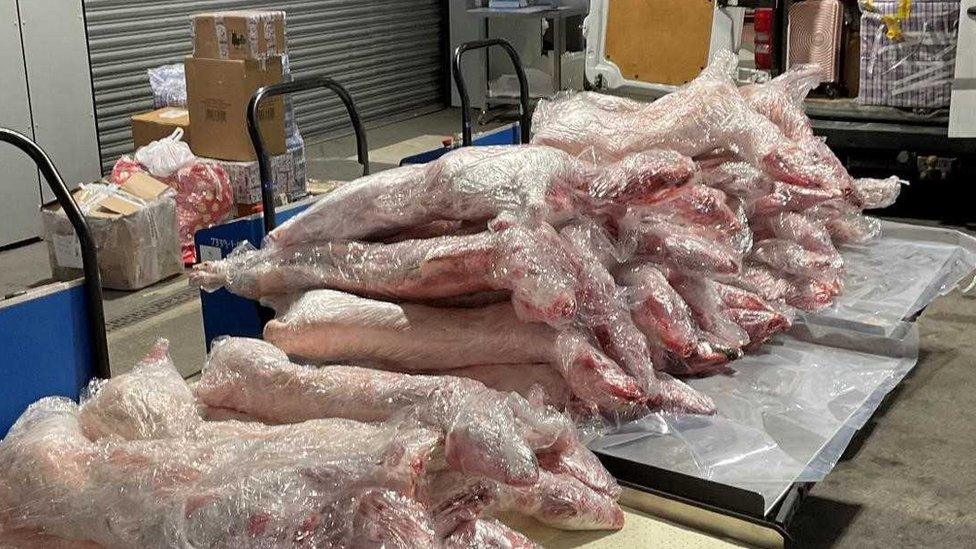Tonnes of seized illegal meat pose health risk - port
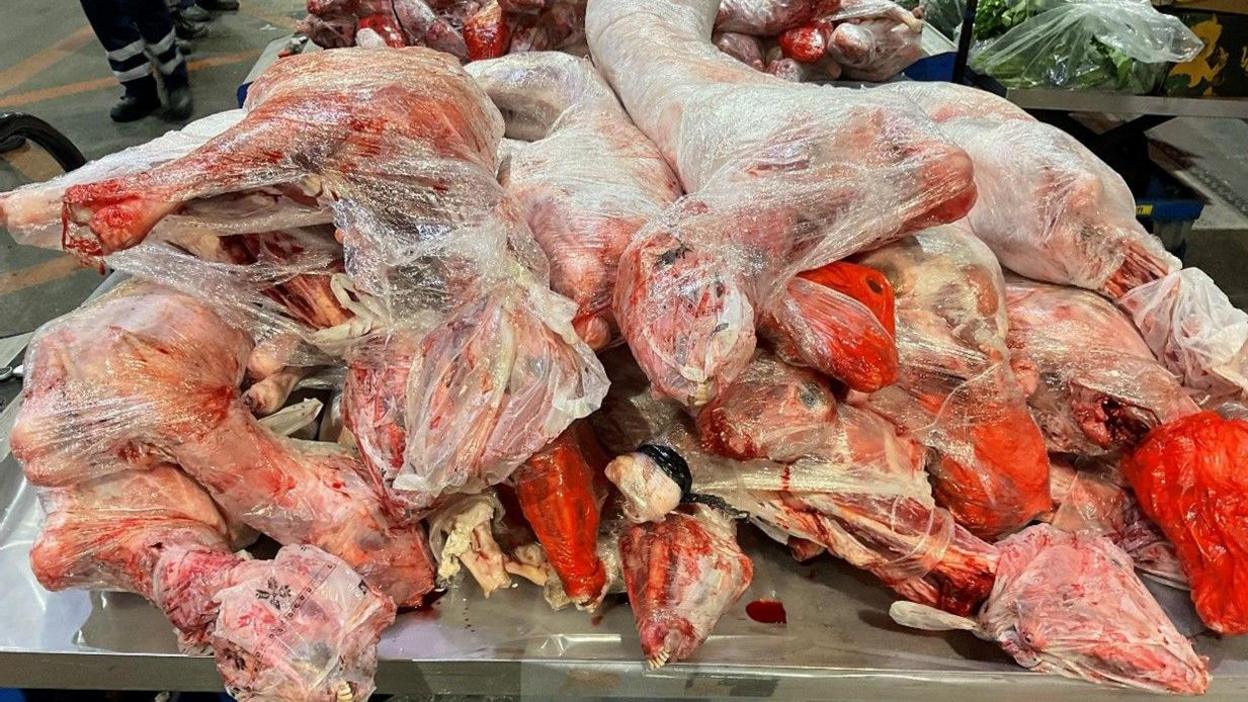
Carcasses seized at Port of Dover were said to be cross-contaminating other food products
- Published
Sheep carcasses transported to the UK without temperature controls, with blood dripping on other food such as pig parts, chicken, beef and cheese, were seized at the Port of Dover days before new controls came in, officials said.
Dover Port Health Authority (DPHA) said it seized 3.4 tonnes of illegal meat on Friday and Saturday, highlighting the importance of its work at the Kent port.
DPHA has criticised government plans to move biosecurity checks from the border to a facility at Sevington, 22 miles (35 km) inland from the port, and has called for a purpose-built, temperature-controlled facility at Dover to be used.
The Department for Environment Food and Rural Affairs (Defra) said checks of medium and high-risk goods were now taking place, including at Sevington.
The seizures of illegal meat at the weekend included 54 unmarked sheep carcasses in two vehicles from Romania, DHPA said.
The vehicles had travelled for several days in unhygienic conditions and unsuitable packaging - described as incomplete and made up of domestic clingfilm, black sacks and duct tape.
To stop the potential spread of disease, the illegal meat was removed from the food supply chain at the point of entry at Dover, officials said.
It came amid increased concerns that African Swine Fever (ASF), recently found in Sweden, Italy and Germany, could spread to the UK.
DPHA has objected to government plans to cut Dover District Council’s funding for ASF checks by nearly 70%.
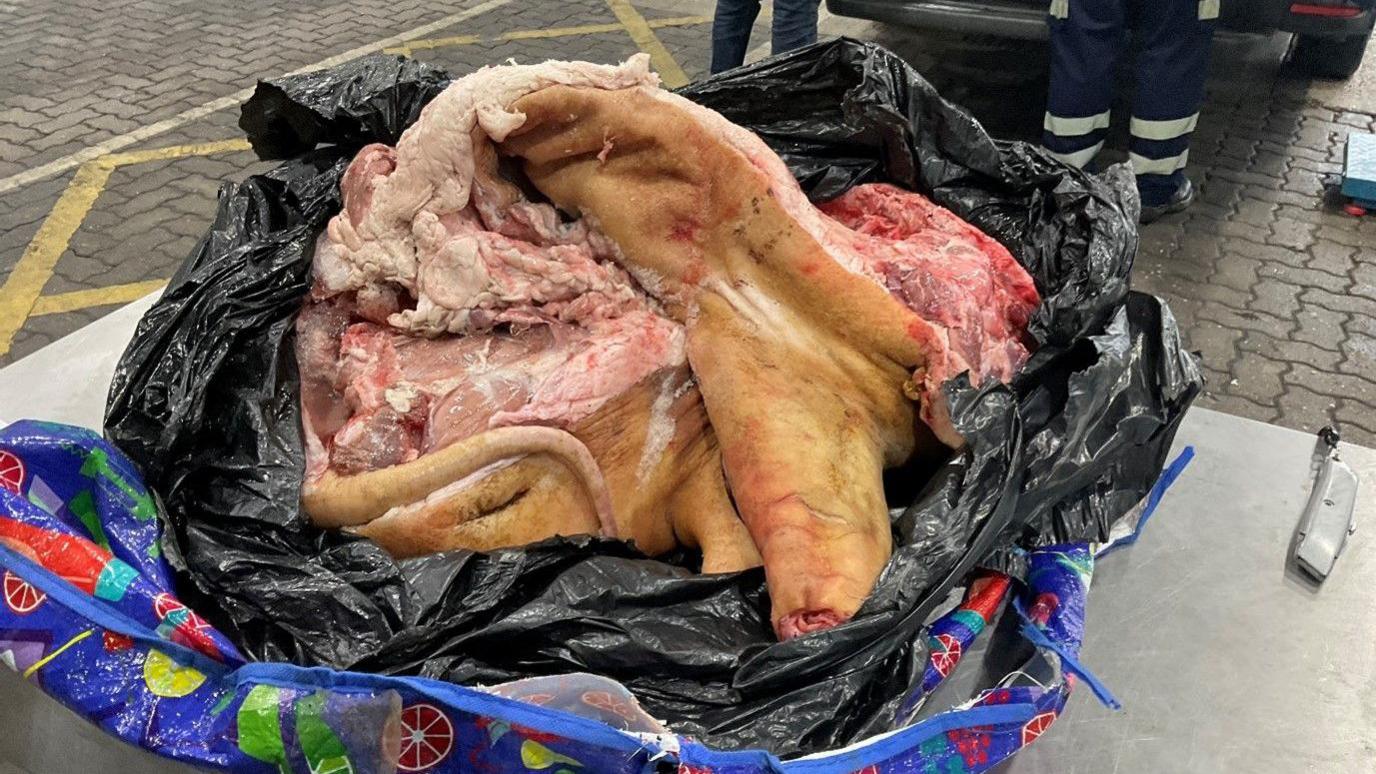
The seizures of illegal meat at the weekend included 54 unmarked sheep carcasses in two vehicles from Romania, DHPA said
Lucy Manzano, head of port health and public protection at DPHA, warned of the risks of moving commercial food checks from Dover and the Channel Tunnel.
“Commercial imports of animal products - including high-risk meat and meat products - will be able to arrive at Dover from rest-of-world countries and leave the point-of-entry and Port Health Authority at Dover to enter our food chain without checks,” she said.
“This is the only border where food that is required to be checked will be able to travel freely and uncontrolled, to self-present at a facility 22 miles away.”
However, according to Defra, two sites would not be necessary to service the volume of checks anticipated.
Defra said new post-Brexit checks which began at midnight will improve the UK's biosecurity.
A spokesman said: "We have strict import controls in place to limit illegal or possible infected meat being brought into England – and preventing an outbreak of African Swine Fever is one of our key biosecurity priorities.
“We work closely with Port Health Authorities to enforce these controls effectively and are confident that existing and new infrastructure will have the capacity and capability to maintain these high standards.”
Defra said it had carefully considered the option of maintaining operations at both the facility at Bastion Point, Dover, and Sevington, but it said two sites were not necessary to service the volume of checks it anticipated and would cost an additional £7m a year.
It said this additional cost would impose an unnecessary additional burden on businesses.
Follow BBC Kent on Facebook, external, on X, external, and on Instagram, external. Send your story ideas to southeasttoday@bbc.co.uk, external or WhatsApp us on 08081 002250.
- Published30 April 2024
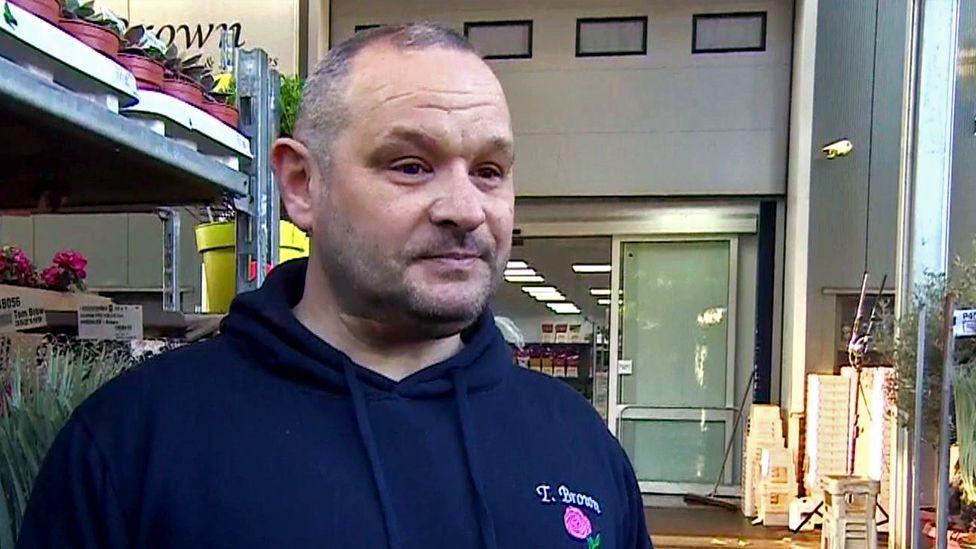
- Published9 February 2024
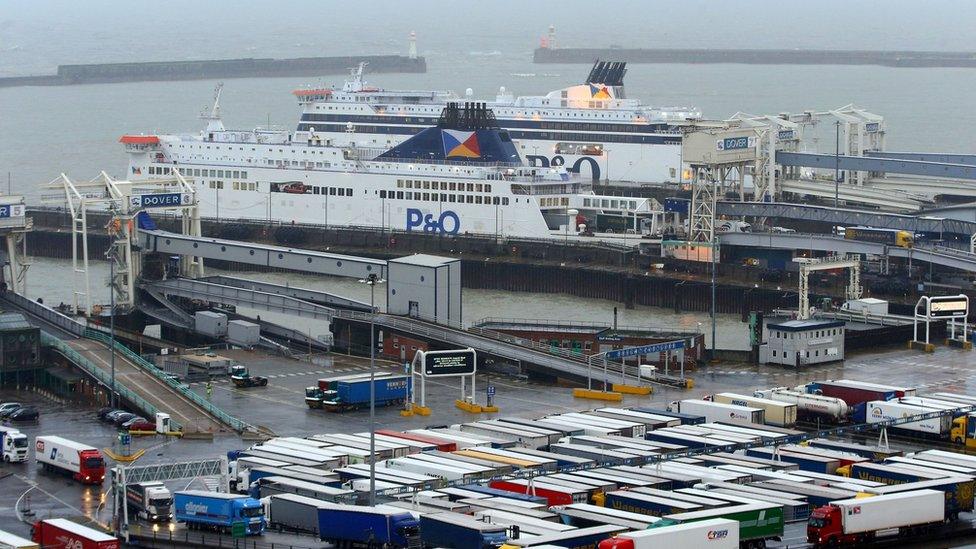
- Published31 January 2024
